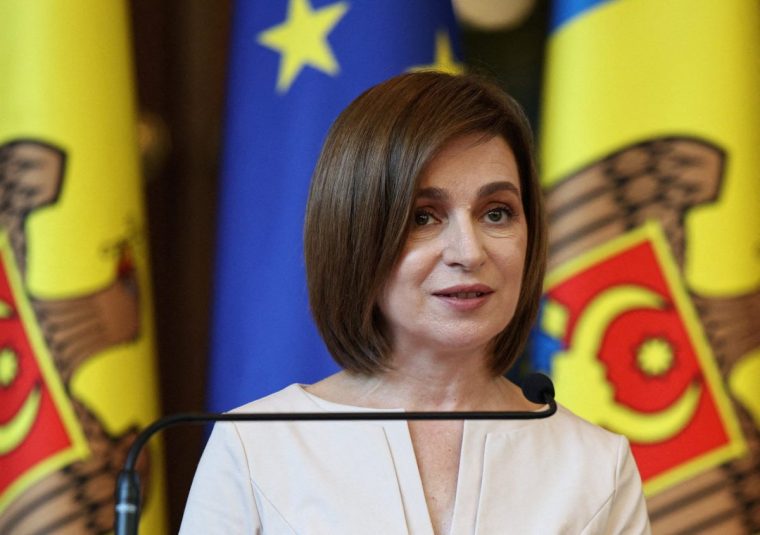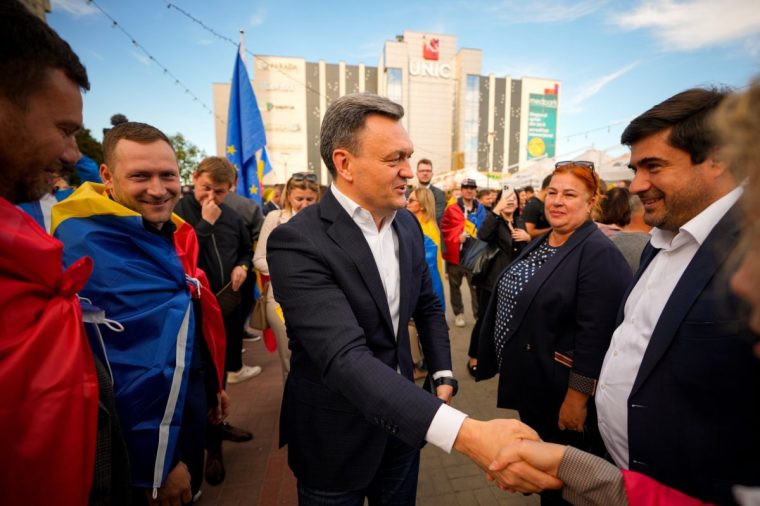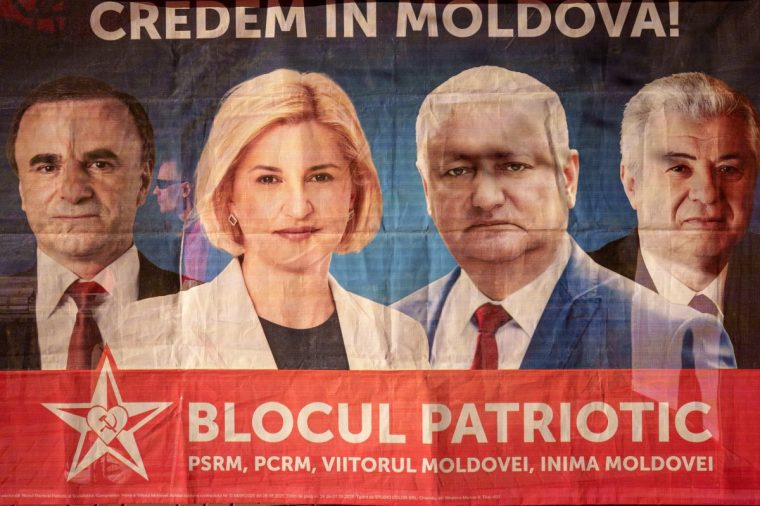Vladimir Putin’s interest in Moldova has grown amid Russia’s failures on the battlefield in Ukraine
Moldovans will head to the polls on Sunday to cast their votes in a pivotal election that could determine the geopolitical future of the country.
The small Eastern European state of 2.4 million people is currently on the path to EU membership, having applied to join in the wake of Russia’s invasion of its neighbour Ukraine.
Russia is keen to reverse the process and regain control over the region, with the aim of reshaping Moldova in the image of Transnistria, a separatist enclave inside the country which declared independence in 1990, falling under Russian control.
On Sunday, voters will renew the 101 seats of the Moldovan parliament, choosing between the governing pro-European Action and Solidarity Party (PAS) and the Patriotic Electoral Bloc (BEP), a group of pro-Russian opposition parties.
Moldova’s President, Maia Sandu, who founded PAS, has accused Russia of attempting to influence the outcome by spreading fake news, illegally bankrolling parties, buying votes and organising protests.
“The Kremlin believes that we are all for sale. That we are too small to resist. That we are not a country, only a territory,” she said on Monday. “But Moldova is our home. And our home is not for sale.”
The co-leader of the BEP, Igor Dodon, has in turn accused the “criminal PAS regime” of intimidating its opponents, while the Kremlin has denied meddling in Moldova’s affairs.

Dodon was unseated by Sandu as president in 2020, but polls suggest PAS could lose its majority in parliament this time round, forcing it to seek a coalition with smaller entities.
On Friday pro-Russian party Heart of Moldova, part of the pro-Russian Patriotic Bloc, was banned from standing in Sunday’s election by the central election committee.
Thirty-six candidates have been struck from the ballot following the decision. Party leader Irina Vlah was sanctioned by some EU countries this week on suspicion of assisting Russian interference.
Last year, a referendum on the country’s EU membership bid passed by a narrow margin: 50.4 per cent to 49.6 per cent.
“With the interference, it is possible that pro-Russia forces can win,” said Orysia Lutsevych OBE, deputy director of the Russia and Eurasia programme at the Chatham House think-tank. “The Moldovan electoral field is completely toxic – it’s not free and fair.”
A PAS-controlled parliament would keep Moldova’s bid to join the EU by 2030 on track, while a coalition or a pro-Russian majority could easily derail the process.

Emily Ferris, senior research fellow in the International Security Studies department at the Royal United Services Institute think-tank, warned: “Moldova has a long history of shaky parliamentary coalitions and governments that collapse before their terms of office end.”
Vladimir Putin’s interest in Moldova has grown amid Russia’s failures on the battlefield in Ukraine, Lutsevych said.
“Russia is not achieving any of its political objectives,” she added. “So, it’s looking for new opportunities. The current Kremlin regime is very opportunistic.”
Interfering in Moldova “fits within their wider ideology of taking control over former Soviet space, all the way to the Russian imperial borders”, she added.
“The worst-case scenario is Moldova becomes Belarus: its territory is used for war in Ukraine, it has a puppet regime that is controlled by the Kremlin; its ties with the West are severed, and there is political prosecution of the opponents and the rest of people.”
Belarus has been ruled by President Aleksander Lukashenko, a close Putin ally, since 1994. He extended his grip on power in January after securing nearly 90 per cent of the vote in an election widely accepted as rigged.
Lukashenko allowed Putin to use Belarus as a base to invade Ukraine three years ago, and has moved ever closer to his neighbour in the period since, relying on Russia for more than half of the county’s foreign trade.
Gaining control of Moldova would enable Russia to bolster its presence in Transnistria, where around 1,500 Russian soldiers are already based.
In June, Moldova’s Prime Minister, Dorin Recean, claimed the Kremlin had plans to deploy a further 10,000 troops to the territory, which shares a 450km border with Ukraine.
Russian forces could be deployed in a similar fashion to how troops were from Belarus in 2022, creating a “new southern flank” and threatening the crucial Black Sea port city of Odesa, Lutsevych said.
Sandu has warned that the result could also have serious defence implications for Moldova’s neighbours to the West.
In a speech to the European Parliament earlier this month, she said: “The Kremlin’s goal is clear — to capture Moldova through the ballot box, to use us against Ukraine and to turn us into a launchpad for hybrid attacks on the European Union.”

There are significant fears that Kremlin-backed agitators could spark disorder on the streets if the pro-Russian bloc loses the vote on Sunday.
Moldovan police arrested more than 70 people this week over what authorities described as Russian-backed efforts to foment unrest in the run-up to the election.
“There could be scope for social violence if Russia continues to support protests against the government – by paying protesters well. Mobilising them en masse could create problems for the police and could escalate in an uncontrolled manner,” Ferris said.
Lutsevych said the situation reminded her of the Donbas region of Ukraine, where Kremlin-backed separatists seized government buildings in towns and cities in 2014. Russia unilaterally declared its annexation of the region in 2022 after gaining further control of the territory.
“They could use proxy groups and special military intelligence officers to destabilise Moldova,” she added.
Failing to turn Moldova into a client state would undermine Putin, calling into question his leadership, Lutsevych said.
“It would be another failure, fiasco, and hopefully lead to the eroding of Putin’s power and his image with Russian elites,” she said. “If they cannot take over small Moldova – where they have energy problems, rising prices, some Russian sympathetic population, along with enclaves like Transnistria – then it would be big slap to the face of the Kremlin strategy.”
